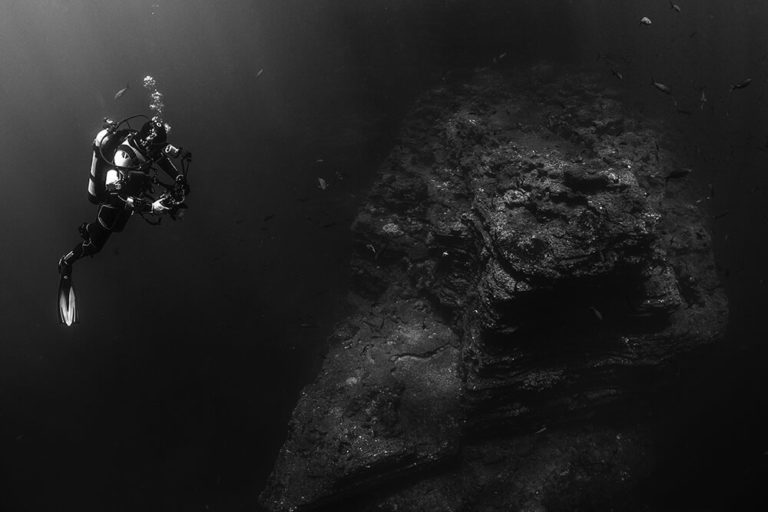6 Tips for a Perfect Night Dive

As the sun sinks down over the ocean, many divers exit the water, while others jump in. Night diving has become extremely popular among scuba divers due to its unique and challenging nature. From nocturnal marine life to bioluminescence, diving after sunset is an entirely different world, filled with thrilling experiences. But if you’re not properly prepared, you might miss out on all it has to offer. Here’s what you need to know to achieve the perfect night dive:
DIVE IT DURING THE DAY
It’s crucial to familiarize yourself with the dive site during the day before attempting it at night. This will help you get used to the topography, depth and currents. While night diving is perfectly safe, it can also be disorienting due to the limited range of vision. By getting used to the area during the day, it’ll feel more manageable at night. A daytime exploration will also allow you to spec out the areas you want to examine in the evening, making for a more fulfilling night dive.
DUSK IS DARK ENOUGH
Many first-time night divers assume they must wait until it’s pitch black above water to make their descent. On the contrary, dusk is usually the best time to attempt night diving, especially if it’s your first go. Since the sun has already dipped below the horizon, there is little to no light underwater, giving you the full experience of a night dive with an anchor of light at the surface.
CAREFUL PREPARATION IS KEY
Night dives are very different from daytime dives and should be treated as such. Although you may be eager to jump in, it’s important to slow down and allow extra time for preparation. Even the basics can become difficult during a night dive. For example, you and your buddy will need to decide on communication tactics ahead of time. Will you shine a light on one another to view hand signals or will you use light signals instead? (If you decide to use hand signals, be sure never to shine your light directly into your buddy’s face. It can deplete night vision and cause disorientation.)
It’s also important to discuss a dive plan with your buddy before jumping in. Underwater communication is more laborious at night, so getting clear on the plan before descending will make sticking together much easier.
PACK A SPARE LIGHT
We highly recommend doing your first night dive with a professional divemaster, but if for any reason you don’t, it’s important to remember to bring your own backup light. Your primary light will be a large, bright LED light, allowing you to easily explore and take in your surroundings. Meanwhile, your backup light should be much smaller—about the size and power of a normal flashlight.
If your primary light malfunctions, reach for your backup and signal to your buddy that it’s time to ascend. You should always end the dive if your light goes out, even if your backup is working.
BE RESPECTFUL OF MARINE LIFE
Keep in mind that nocturnal sea creatures are accustomed to darkness, meaning that bright lights are bothersome to them. Always keep marine life at the outer perimeter of your light source to keep from agitating them. It’ll also help you to get a better look, as they’ll be less likely to retreat.
TRY FLUO DIVING
If you’re looking for a breathtaking experience on your night dive, fluorescent diving might be for you. “Fluo Diving” is the use of special lights and filters to see the natural fluorescence of corals and sea creatures at night. The experience is similar to the neon fluorescence of a blacklight!
Just keep in mind, the masks used for fluo diving make night dives feel even darker, so it should only be attempted after you’ve gained some experience with night diving.
